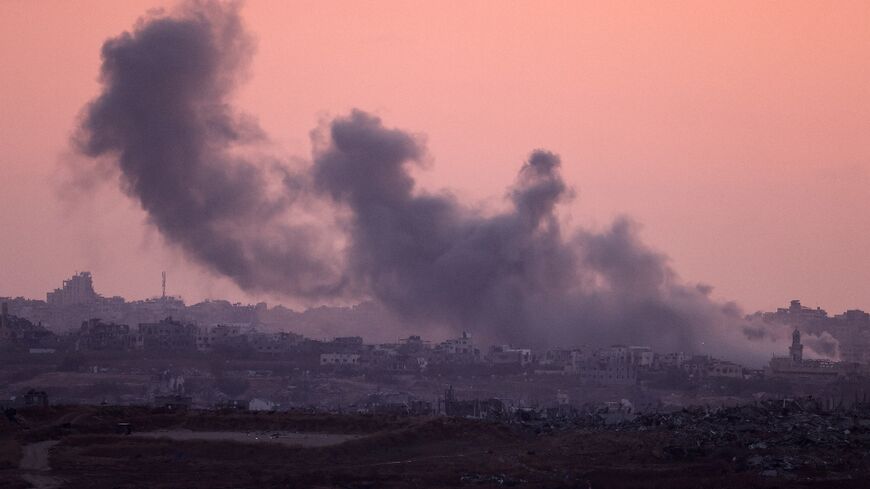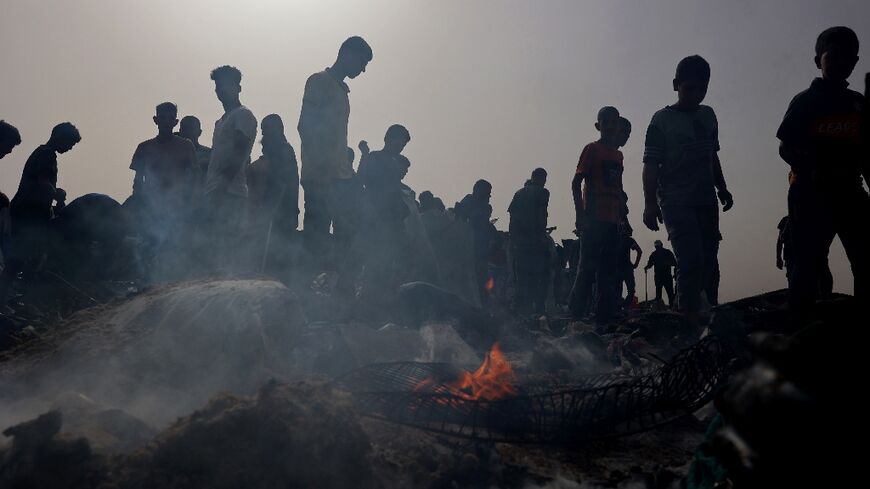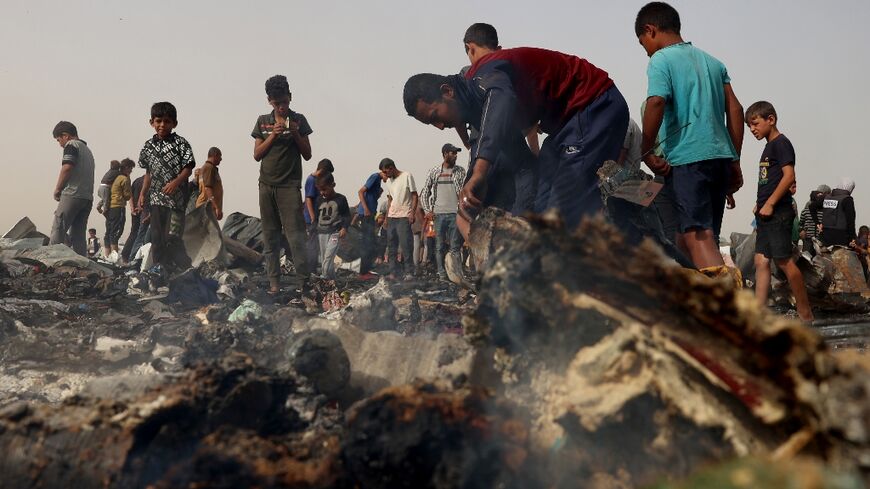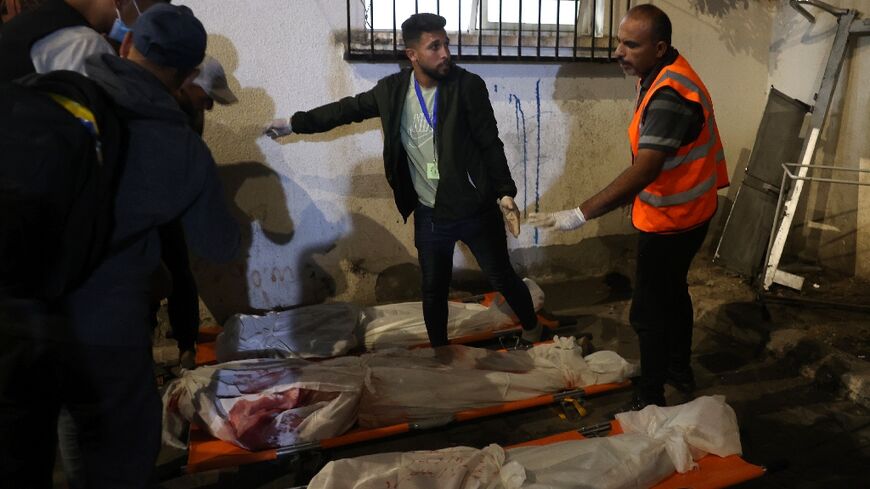Wave of condemnation follows Israeli strikes on Rafah displacement camp
The attack, which killed dozens and burned many alive as tents quickly caught fire, follows a ruling by the UN top court ordering Israel to immediately stop its offensive in Gaza’s Rafah.
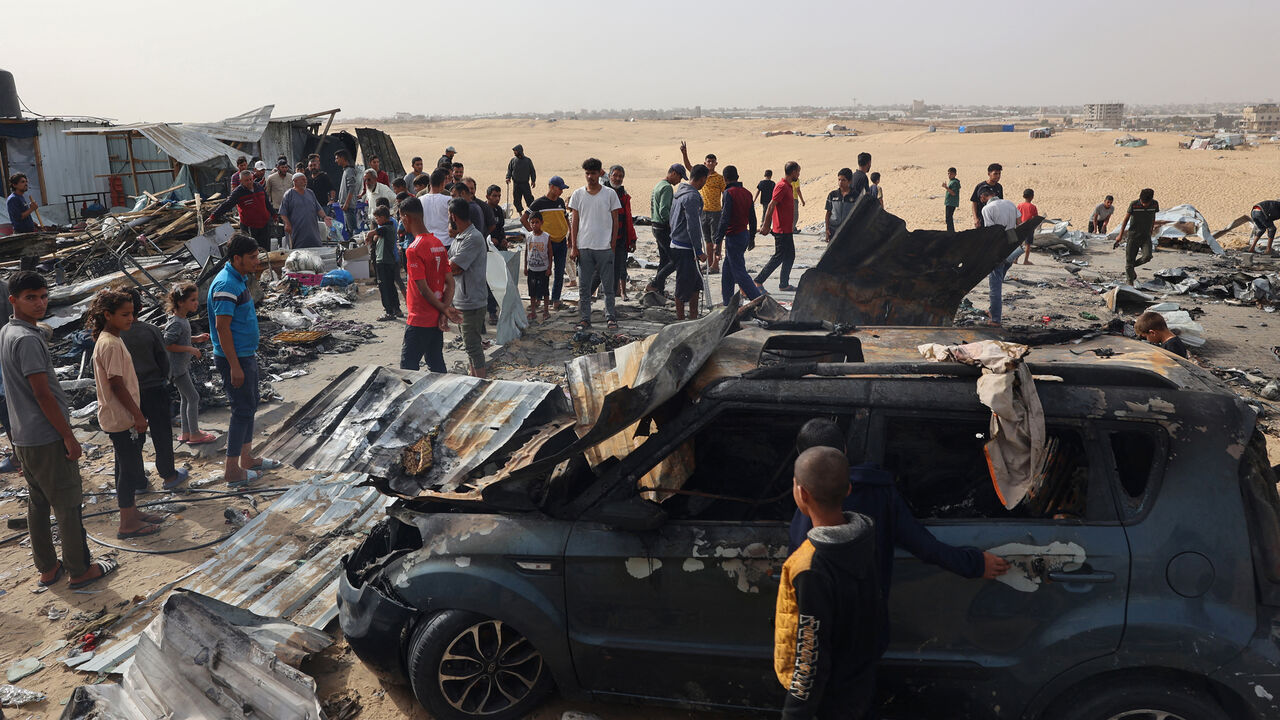
At least 35 Palestinians have been killed late on Sunday in Israeli airstrikes that hit tents for the displaced in an Israeli-designated safe zone in Gaza’s southernmost city of Rafah, prompting a wide wave of condemnations from regional and international actors.
Reports claim at least eight missiles struck the camp in Tal al-Sultan neighborhood in western Rafah, where thousands had been sheltering after evacuating the eastern part of the city upon Israeli orders amid the Israeli army’s ground offensive earlier this month.
Most of the casualties were women and children, while dozens of others were injured, the Gaza-based Health Ministry said in a statement.
Videos and photos of the scene circulating online showed heavy destruction in the camp and people burned alive. The Palestinian Red Crescent Society said in a post on the X platform on Sunday that many people were trapped by the flames as tents burned down, describing "horrific scenes" at the site as their teams were transporting the victims.
Hamas described the attack as a “heinous massacre.” In a statement on Sunday, the group said Israel’s attack came in defiance of the International Court of Justice’s order Friday to halt its military offensive in Rafah.
“We demand the immediate and urgent implementation of the decisions of the ICJ, and pressure to stop this massacre and the shedding of the blood of innocent civilians, including children, women and the elderly,” the statement read.
Hamas further held the US administration and President Joe Biden “fully responsible” for the attack.
The Israeli army, for its part, confirmed the strikes early on Monday, saying it struck a Hamas compound where senior officials of the group were gathered in northwest Rafah.
In a post on X, the military said it conducted the strike against “legitimate targets under international law, through the use of precise munitions and on the basis of precise intelligence that indicated Hamas' use of the area.”
It added that it was aware of reports that the strike caused a fire that spread to a nearby camp, saying “the incident is under review.”
In a follow-up post, the army said its strike killed two Hamas commanders, whom it identified as Yassin Rabia, Hamas' chief of staff for the West Bank, and Khaled Nagar, a senior official in the West Bank, both accused of sending funds to Hamas in the Gaza Strip and planning and carrying out attacks against Israelis.
The Israeli attack came after Hamas’ military wing, Izz ad-Din al-Qassam Brigades, claimed responsibility for a rocket attack on Tel Aviv, the first in months. Israel said the eight rockets were launched from the Rafah area.
Israel has pressed on with its offensive in Rafah in recent weeks, despite warnings of its repercussions on the civilian population. Nearly 1.2 million people have been displaced to Rafah since the beginning of the Israel-Hamas war Oct. 7, according to United Nations estimates.
The ICJ issued a ruling on Friday ordering Israel to “immediately halt its military offensive, and any other action in the Rafah governorate, which may inflict on the Palestinian group in Gaza conditions of life that could bring about its physical destruction in whole or in part.”
Condemnations
Several countries and aid agencies were quick to denounce the attack in Tal al-Sultan neighborhood.
Egypt vehemently condemned the Israeli strikes on the displacement camp, calling it a “deliberate attack” and “a new flagrant violation of the provisions of international humanitarian law.”
In a statement released on Monday, the Foreign Ministry said Egypt “considers this tragic event a continuation of the targeting of defenseless civilians and a systematic policy aimed at expanding the scope of killing and destruction in the Gaza Strip to make it unlivable.”
The statement further called on Israel to abide by the ruling of the ICJ, while at the same time urging the UN Security Council to take immediate measures to ensure an “immediate cease-fire” in the Gaza Strip.
Jordan’s Foreign Ministry issued a similar statement Monday, expressing its condemnation of Israel’s “ongoing crimes” and describing the attack as a “blatant defiance” of the ICJ’s ruling.
For its part, Kuwait’s Ministry of Foreign Affairs said on Monday the attack amounts to “an unprecedented genocide and blatant war crimes,” calling on the international community to pressure Israel to adhere to relevant international legal resolutions, namely the latest ICJ ruling.
Qatar expressed a similar stance and slammed the attack as “a serious violation of international laws.” It further reminded Israel to abide by the ICJ order to halt its offensive in Rafah.
The Foreign Ministry further expressed in a Monday statement its concerns that the attack would hinder the ongoing mediation efforts to reach a cease-fire in Gaza and a hostage deal.
Saudi Arabia also condemned “in the strongest terms” the ongoing “massacres” and targeting of civilians in Gaza by the Israeli army. In a statement on Monday, the Foreign Ministry affirmed the kingdom’s “categorical rejection of the continued flagrant violations by the Israeli occupation forces of all international and humanitarian resolutions, laws and norms.”
Similarly, the Palestinian Authority denounced the “deliberate” Israeli attack on the camp in Rafah, calling it “a massacre that exceeds all boundaries.”
Presidential spokesperson Nabil Abu Rudeineh in a Sunday statement condemned Israel for disregarding international resolutions, including the ICJ order, calling on the international community to “take prompt action” against Israel to stop its “crimes” against the Palestinian people.
Several other countries from around the world, including Italy, Spain, Ireland and Norway, have also denounced Sunday’s strikes on the displaced.
The US administration said it was following the situation. “We’re aware of the reports about the incident in Rafah and are gathering more information,” a spokesperson for the White House National Security Council told The Times of Israel on Sunday.
The strikes in Rafah have also been met by condemnations from rights groups.
Medical charity Doctors Without Borders (known by its French initials MSF) decried the latest attack. “We are horrified by this deadly event, which shows once again that nowhere is safe,” the group wrote on X on Monday. “We continue to call for an immediate and sustained cease-fire in Gaza.”
The UN refugee agency UNRWA also expressed its horror at the “reports of mass casualties” caused by the Israeli attack and said it was concerned for the wellbeing of the displaced in Rafah. “Gaza is hell on earth,” it wrote in a post on X on Monday.
Meanwhile, Francesca Albanese, UN special rapporteur on human rights in the Palestinian territory, said, “This cruelty, along with blatant defiance of the int'l law and system, is unacceptable,” referring to the attack.
“The #GazaGenocide will not easily end without external pressure: Israel must face sanctions, justice, suspension of agreements, trade, partnership and investments, as well as participation in [international] forums,” she wrote on X on Monday.
The war in Gaza has been ongoing since Oct. 7, after Israel launched its air and ground offensive to eliminate Hamas in retaliation for an unprecedented cross-border assault in southern Israel, during which Hamas militants killed nearly 1,200 people and took over 240 others hostage.
Egypt, along with Qatar and the United States, have been scrambling to secure a deal that would see the release of the remaining hostages held by Hamas in Gaza and a cessation of the hostilities in the enclave. The indirect talks between Hamas and Israel have been at a standstill after Israel seized the Rafah border crossing with Egypt, Gaza’s main route for the entry of much-needed aid.



